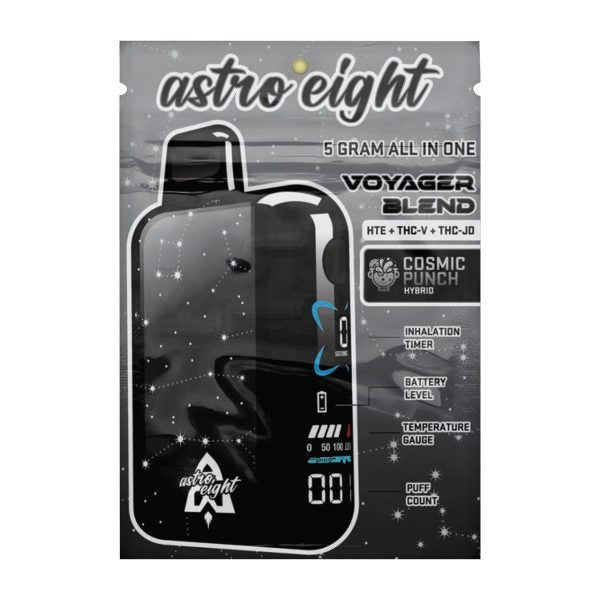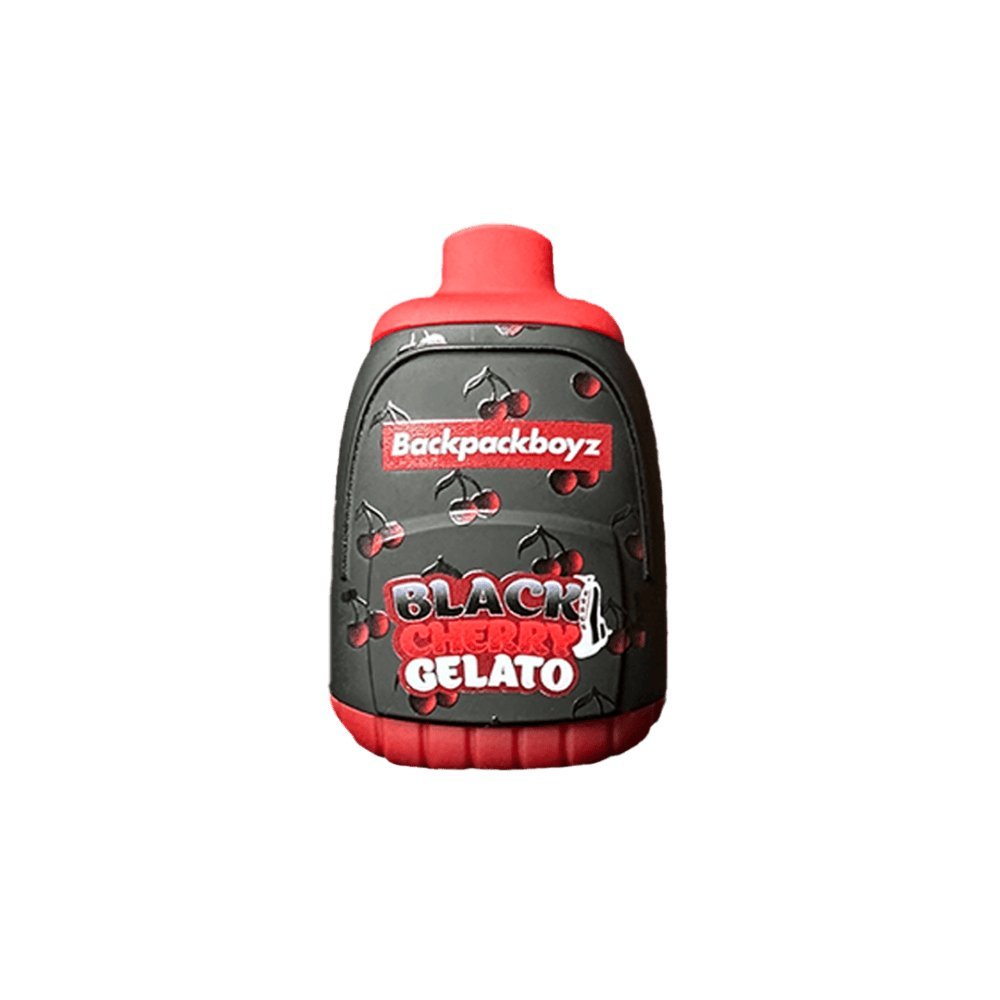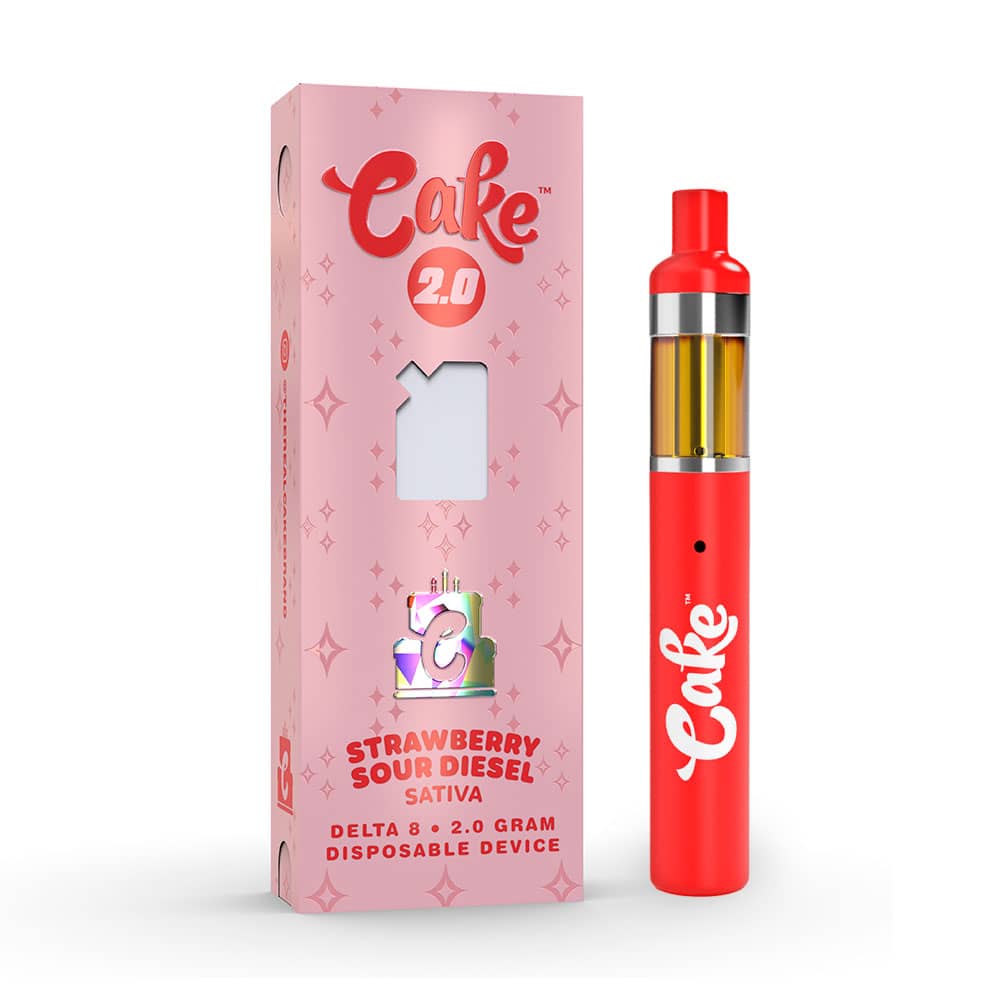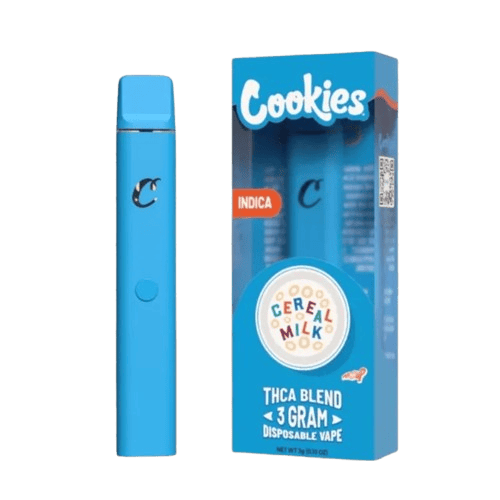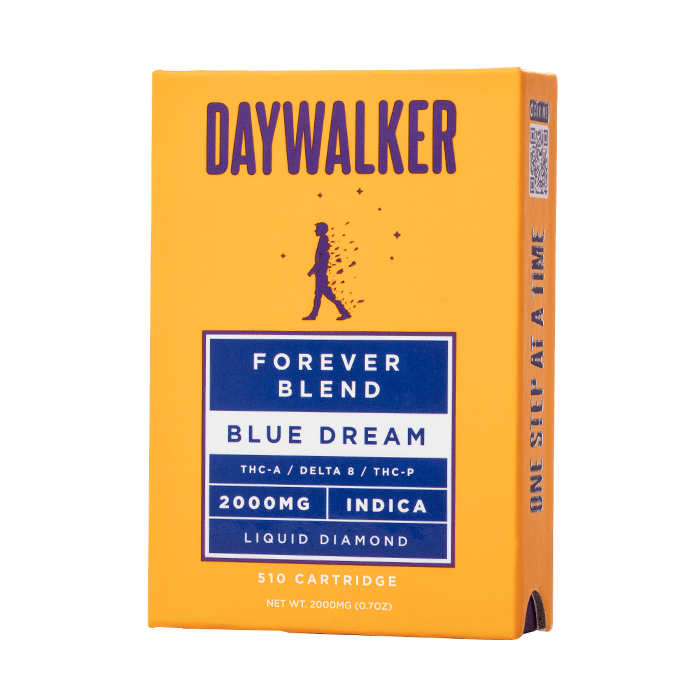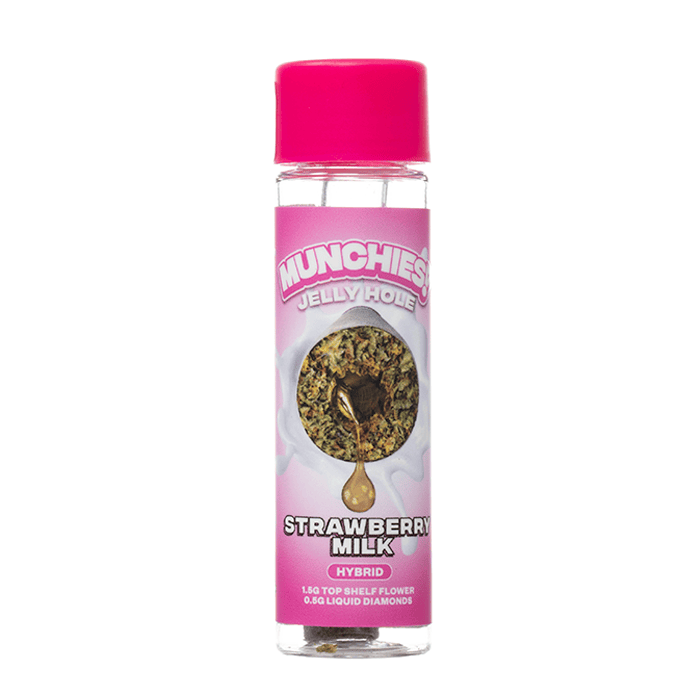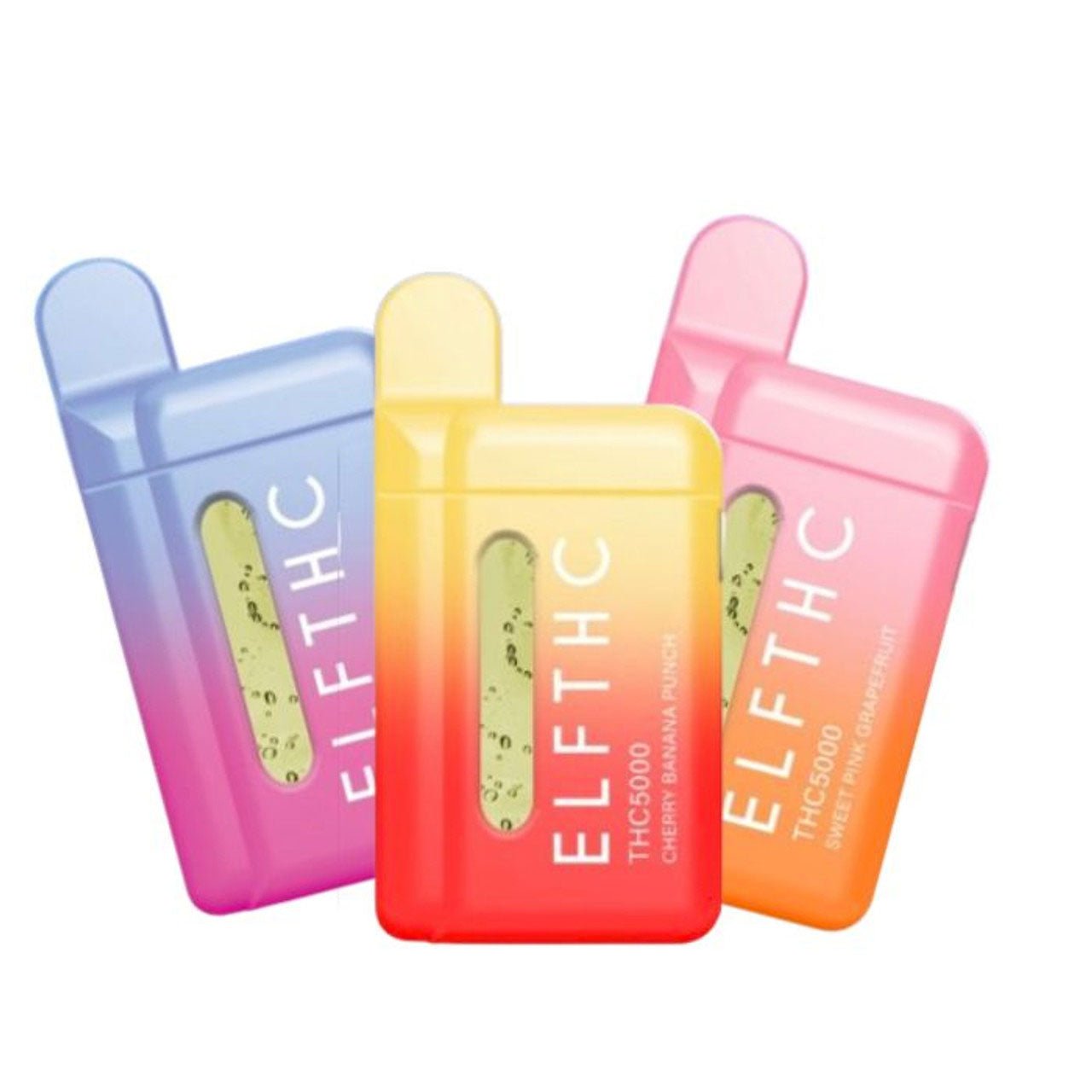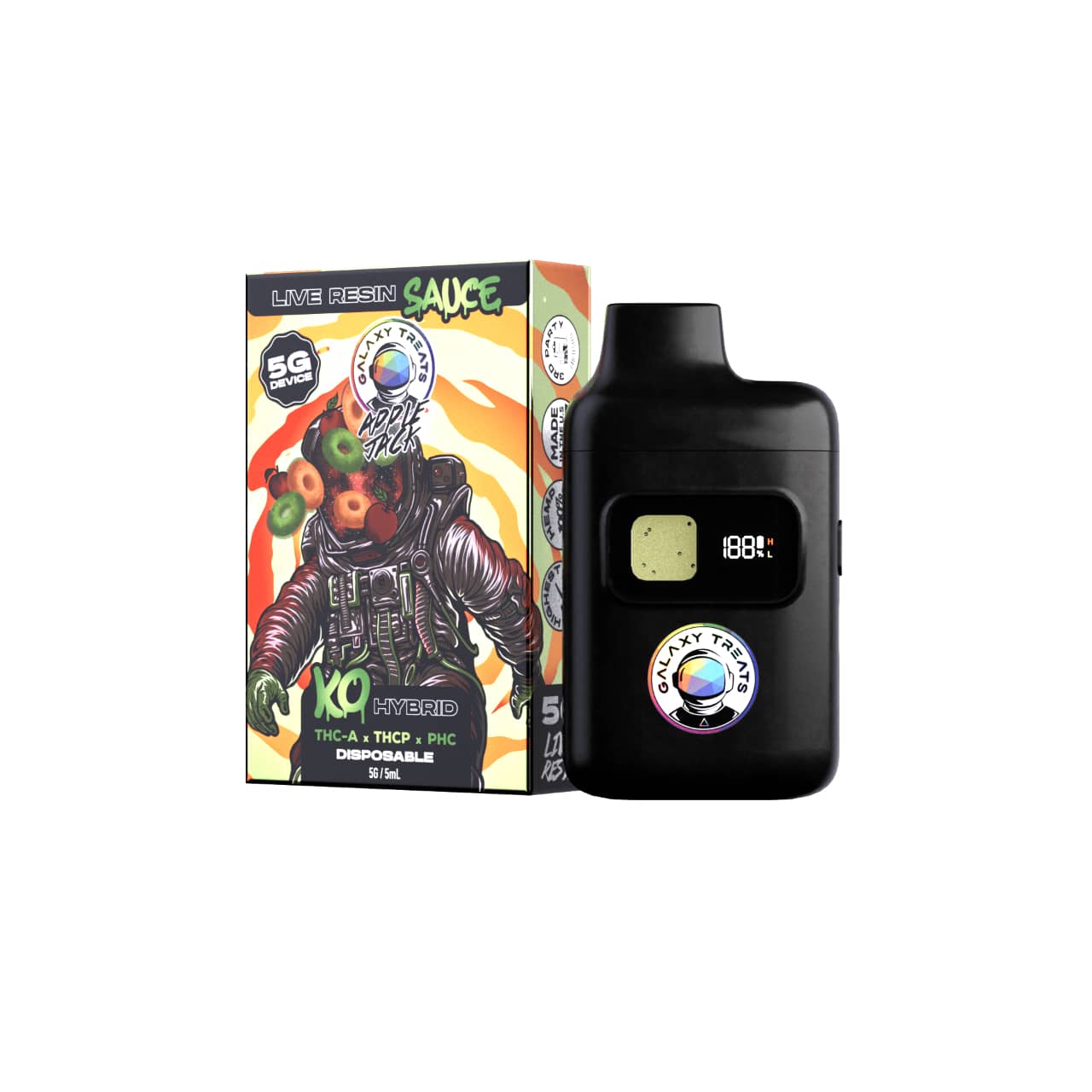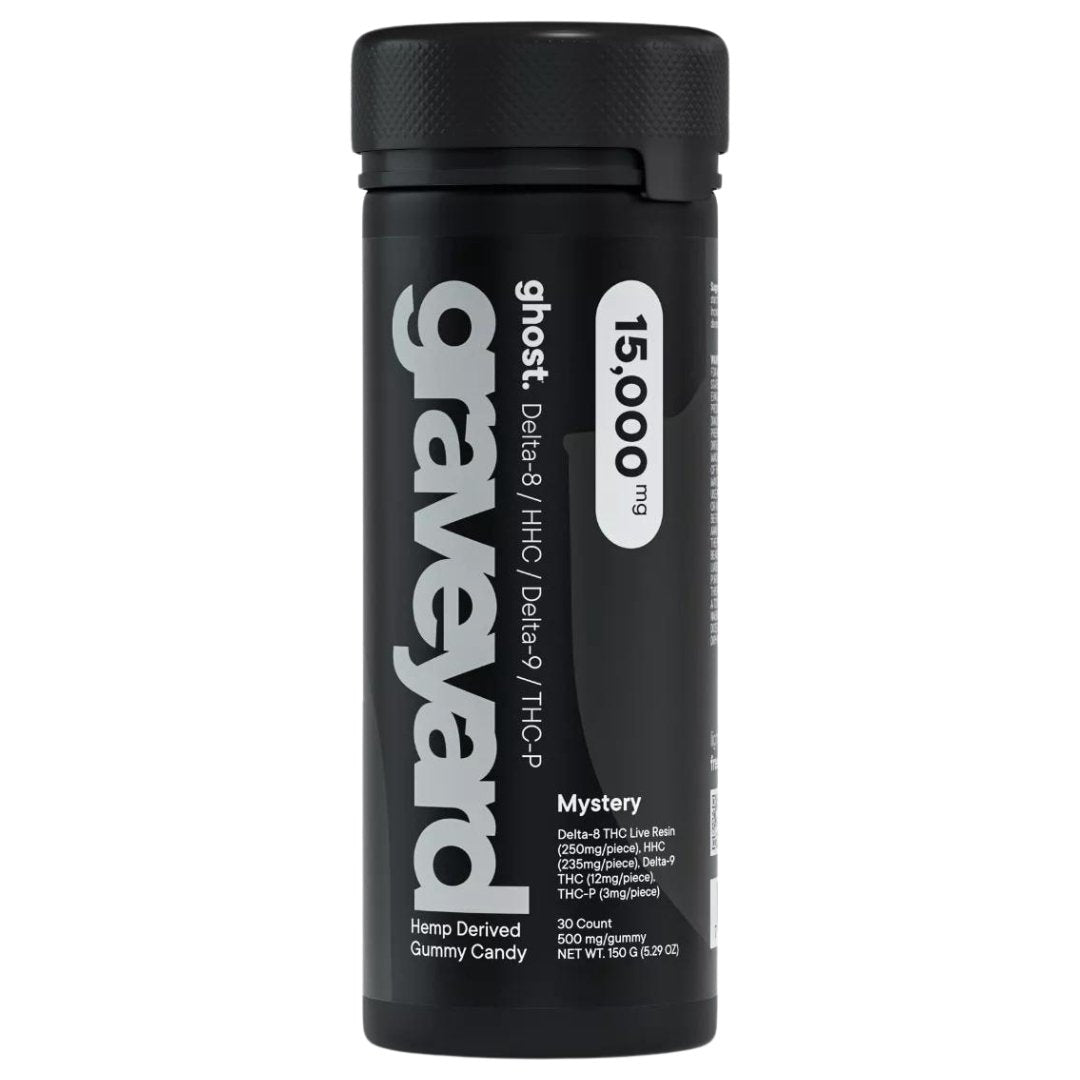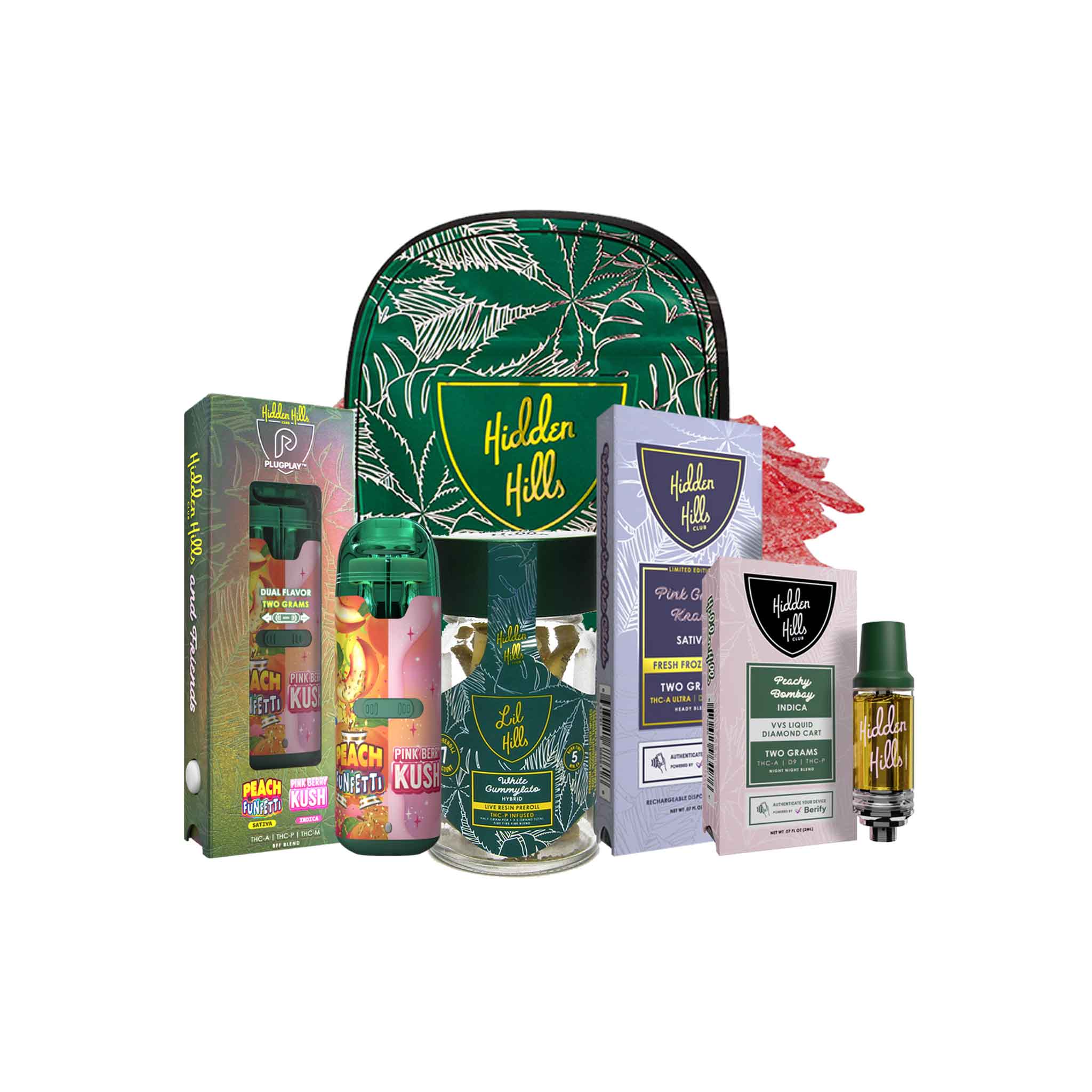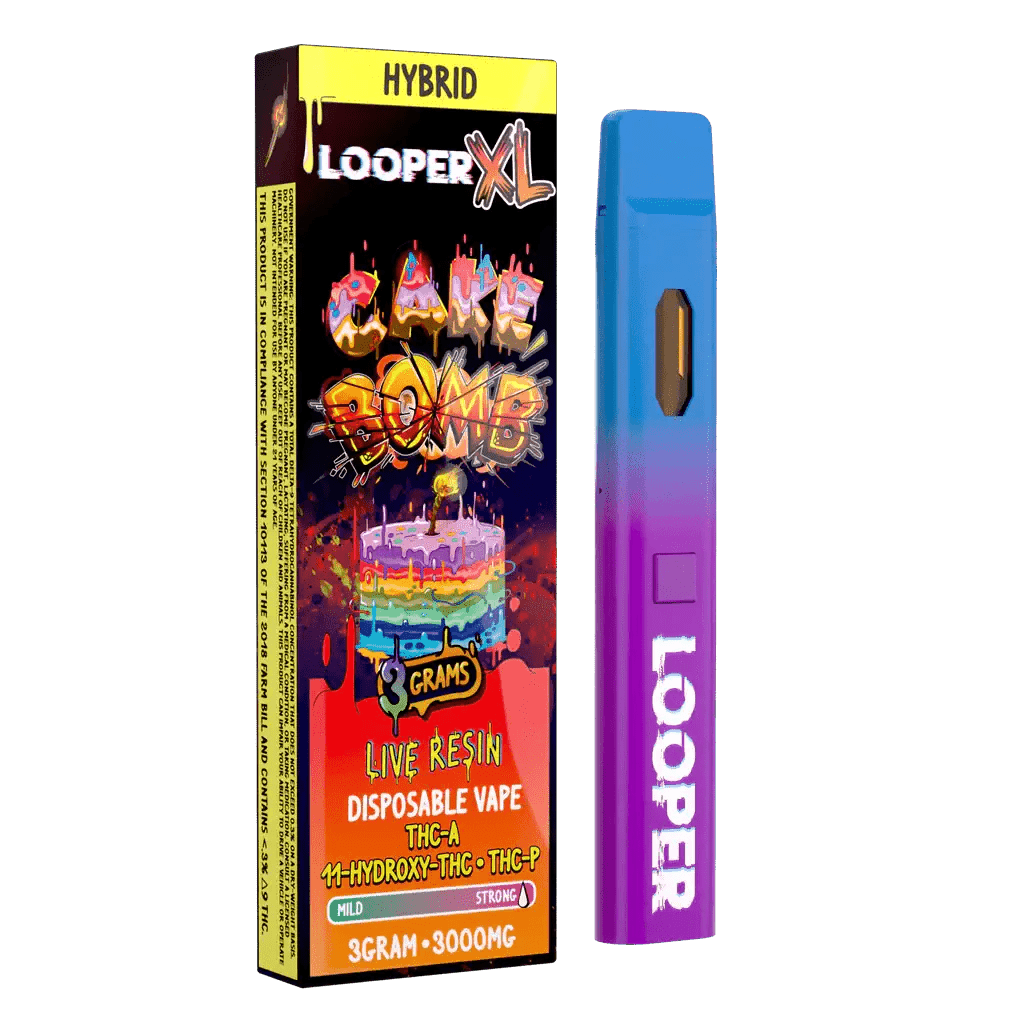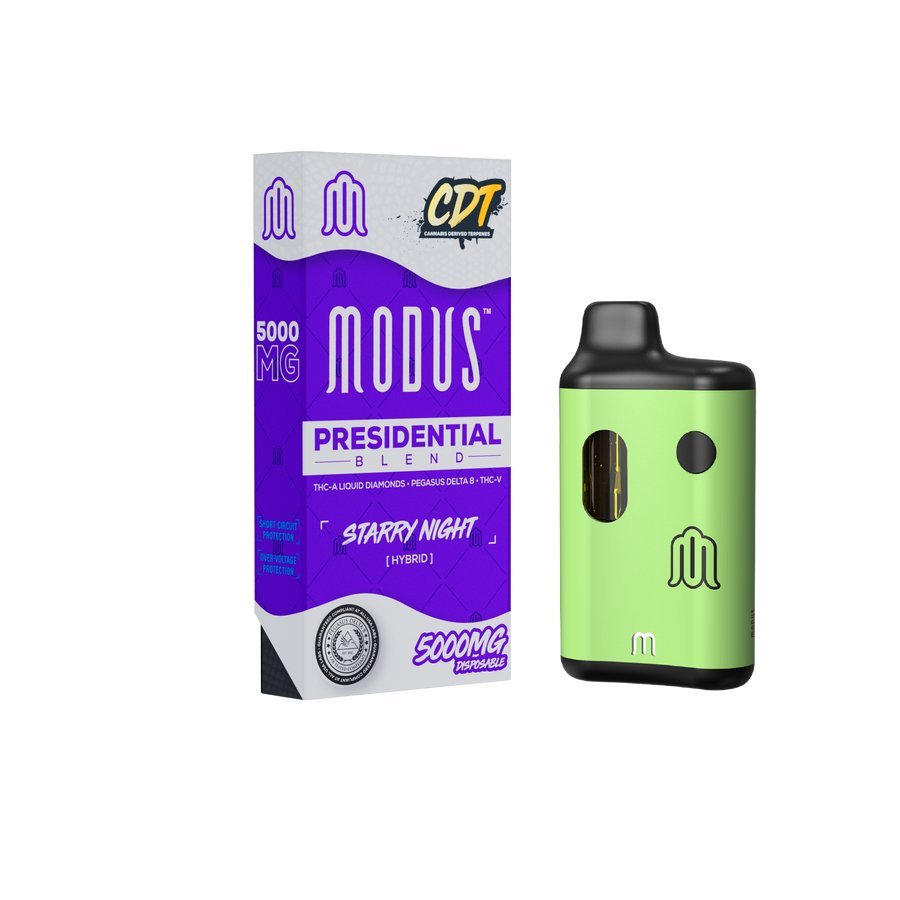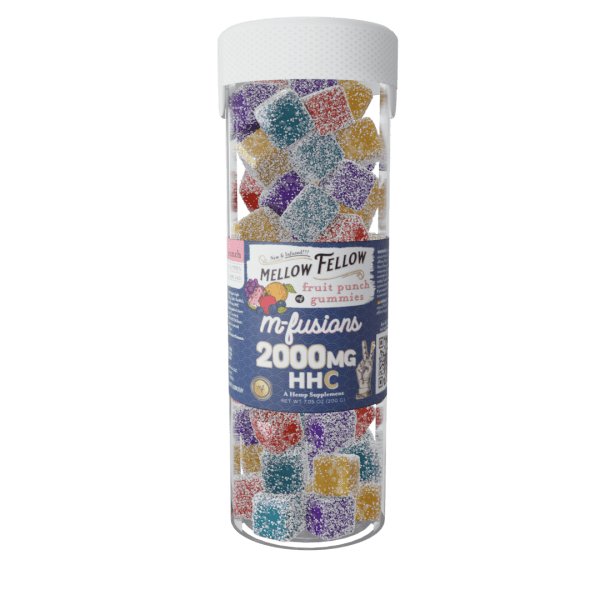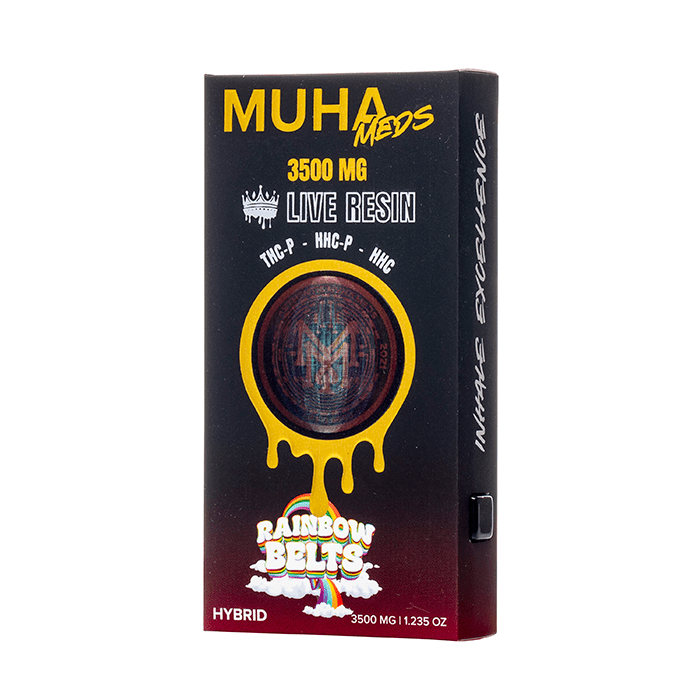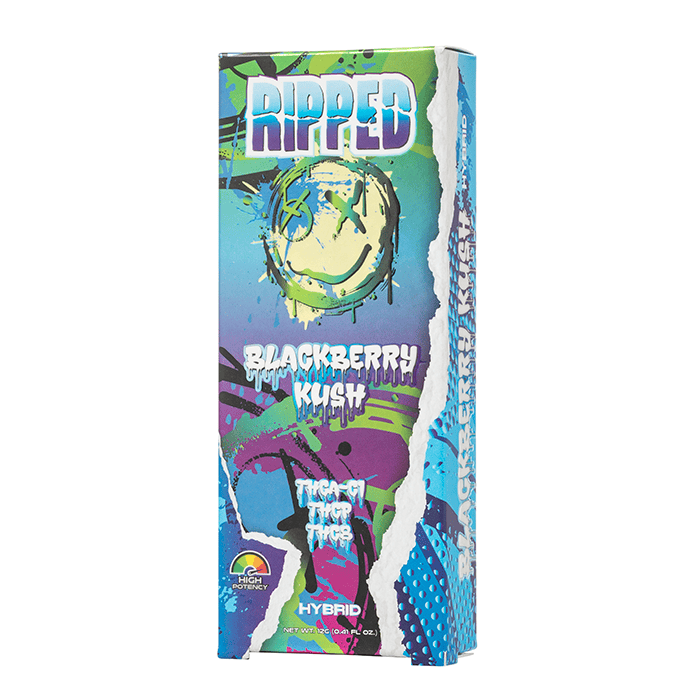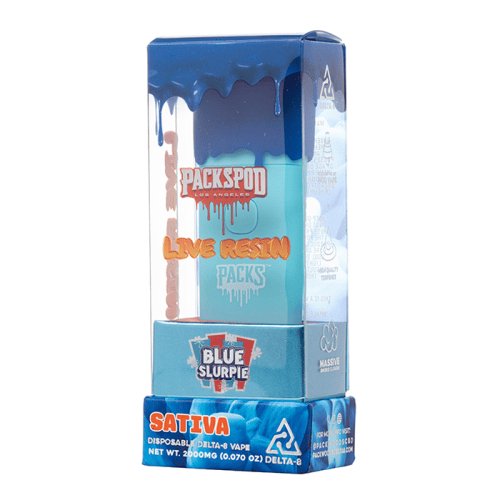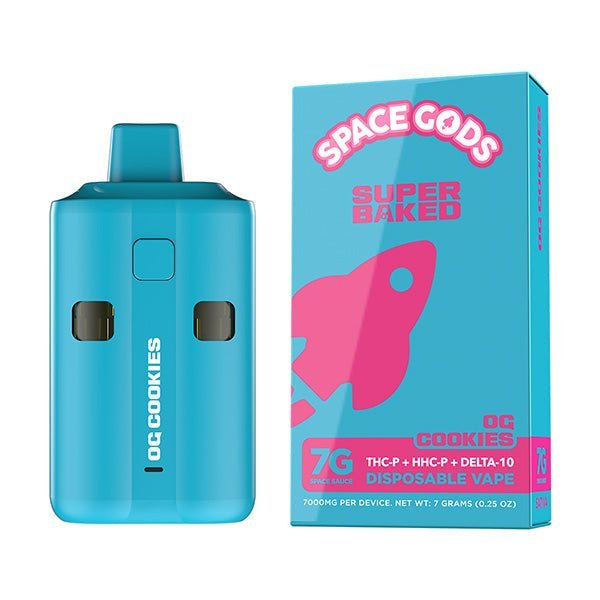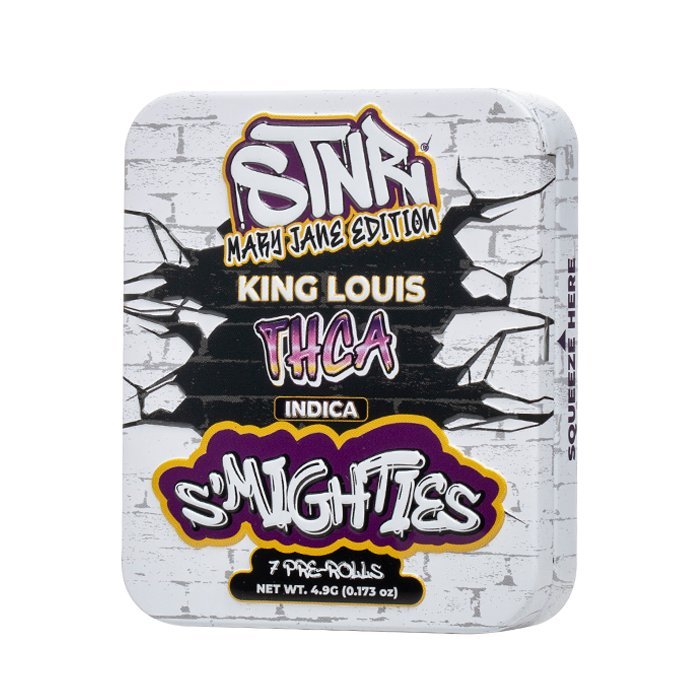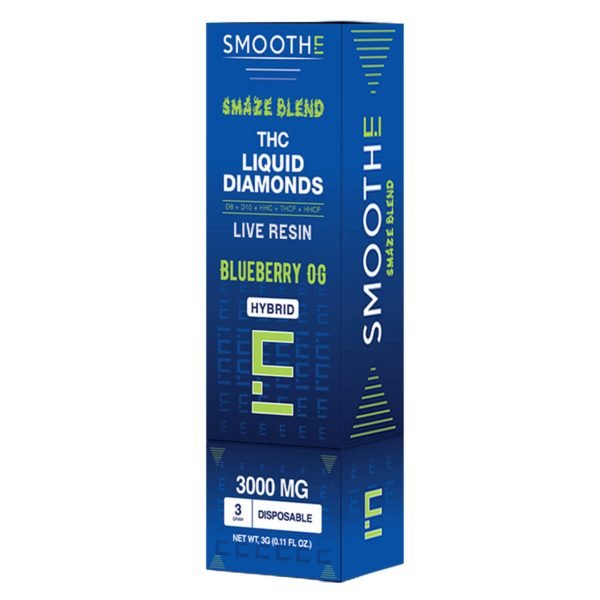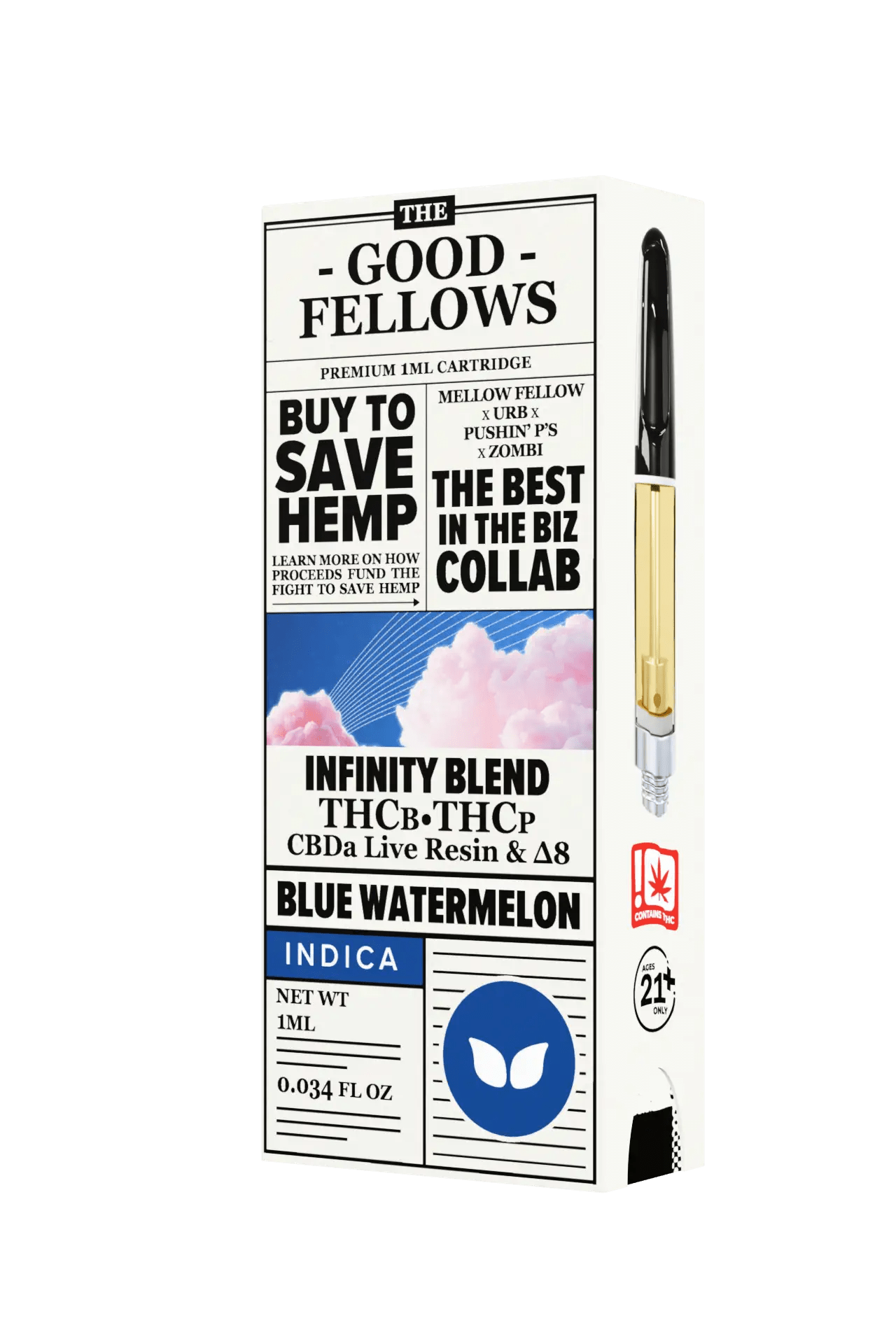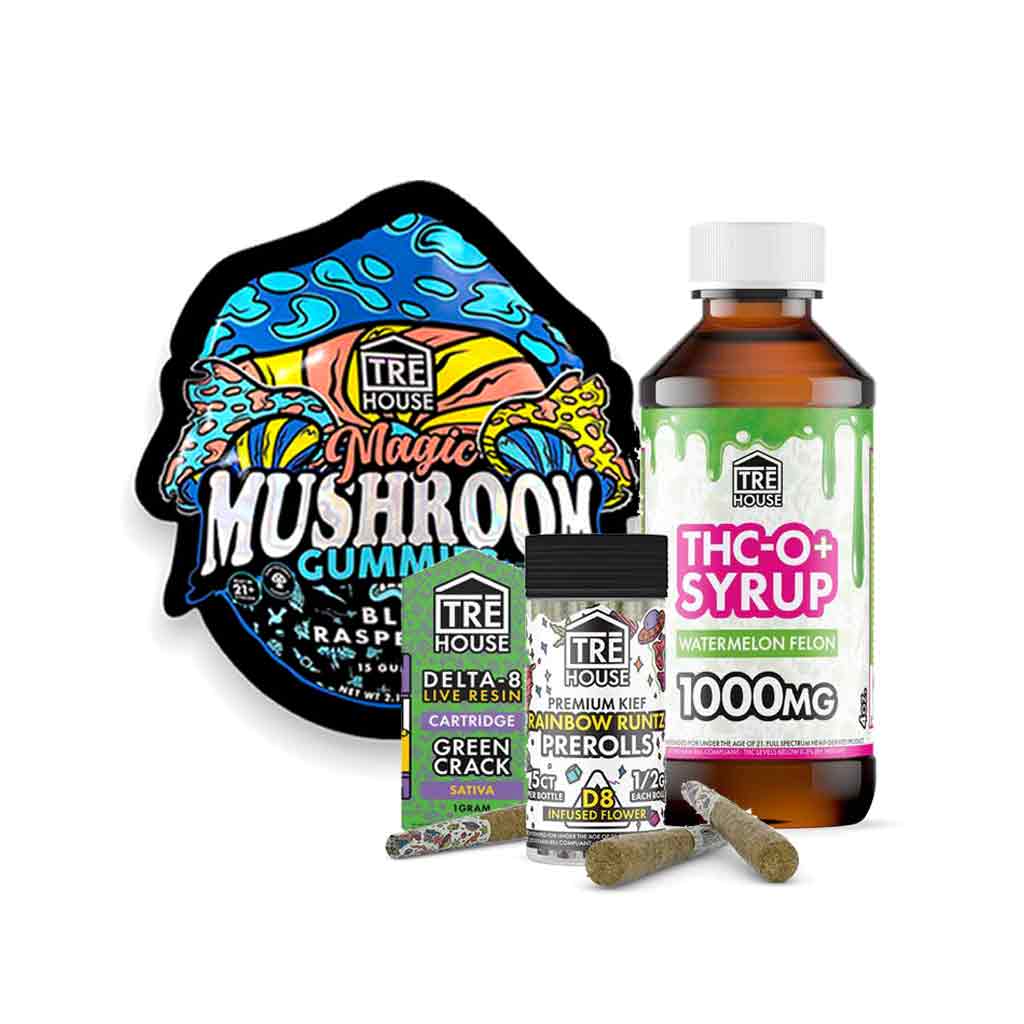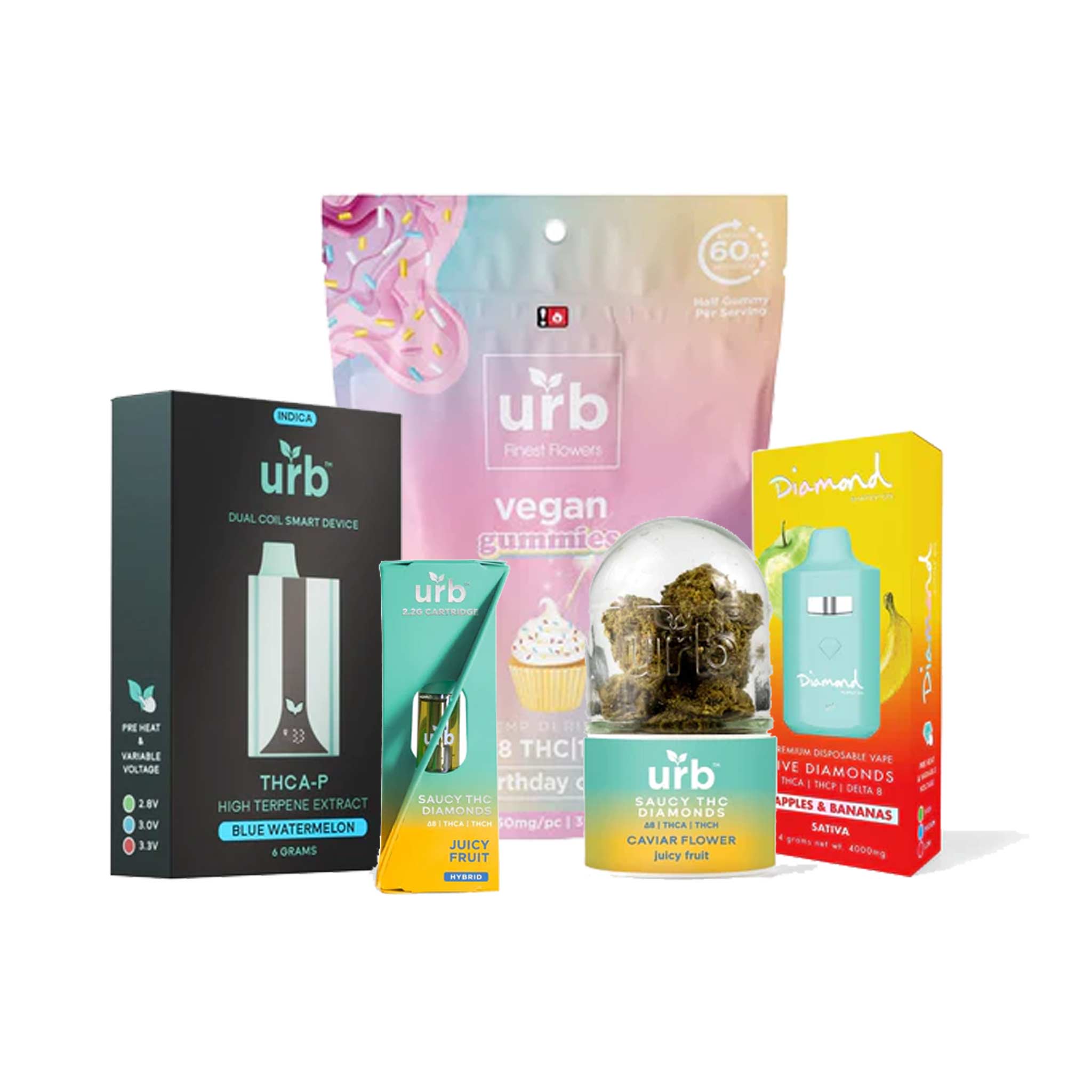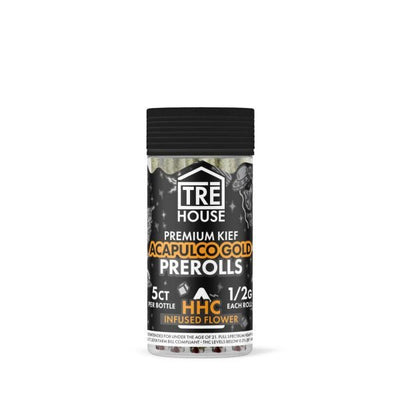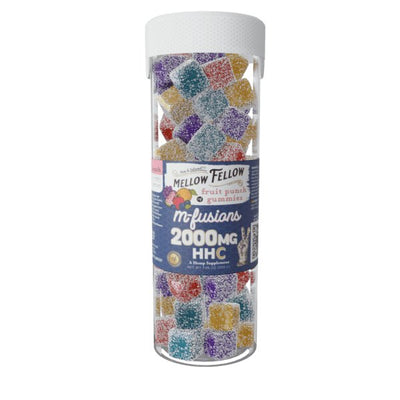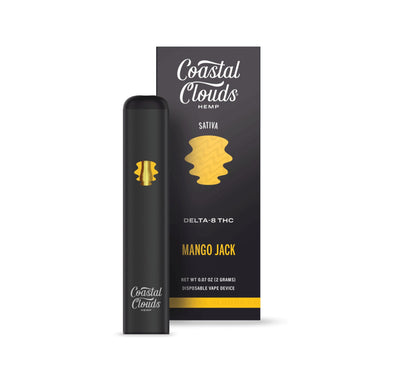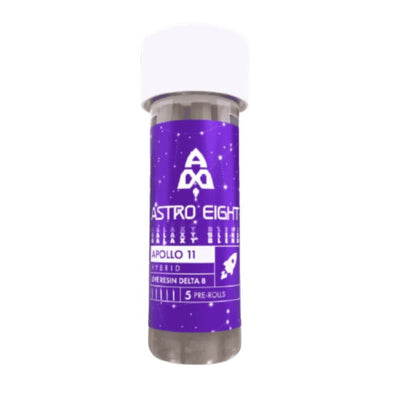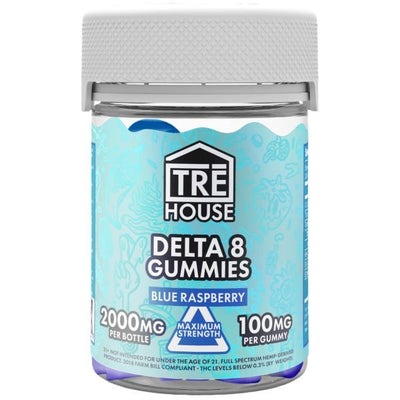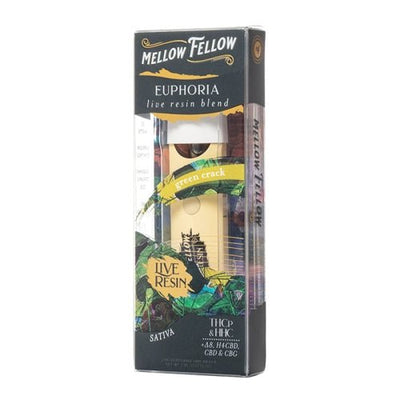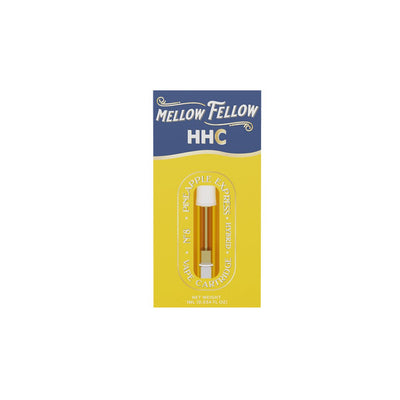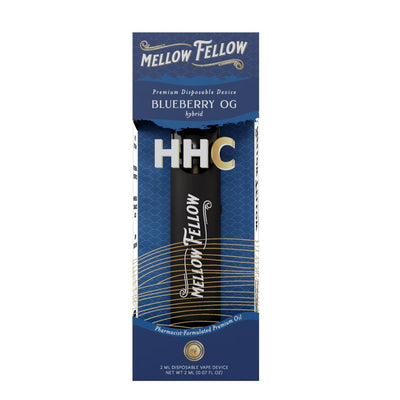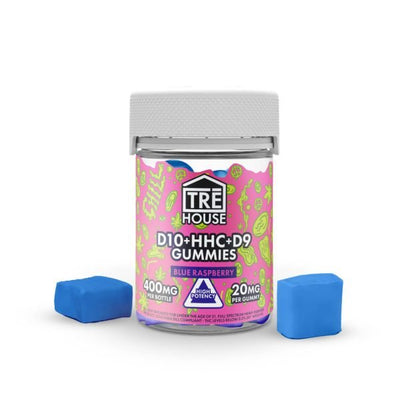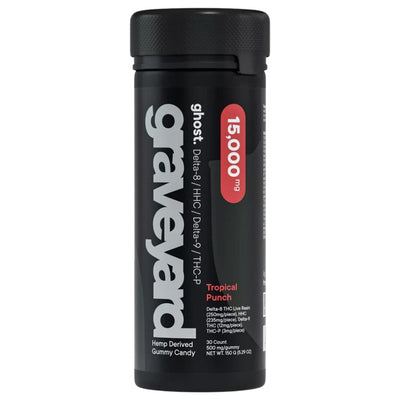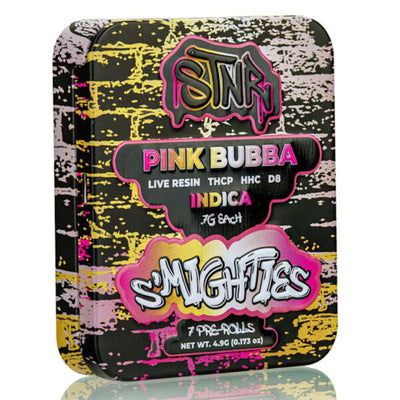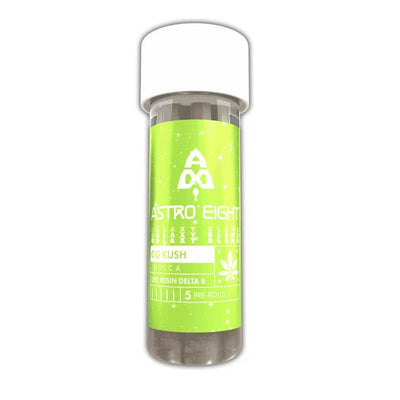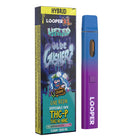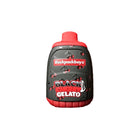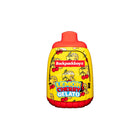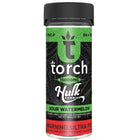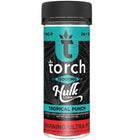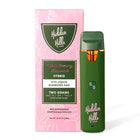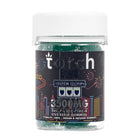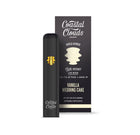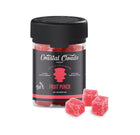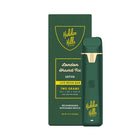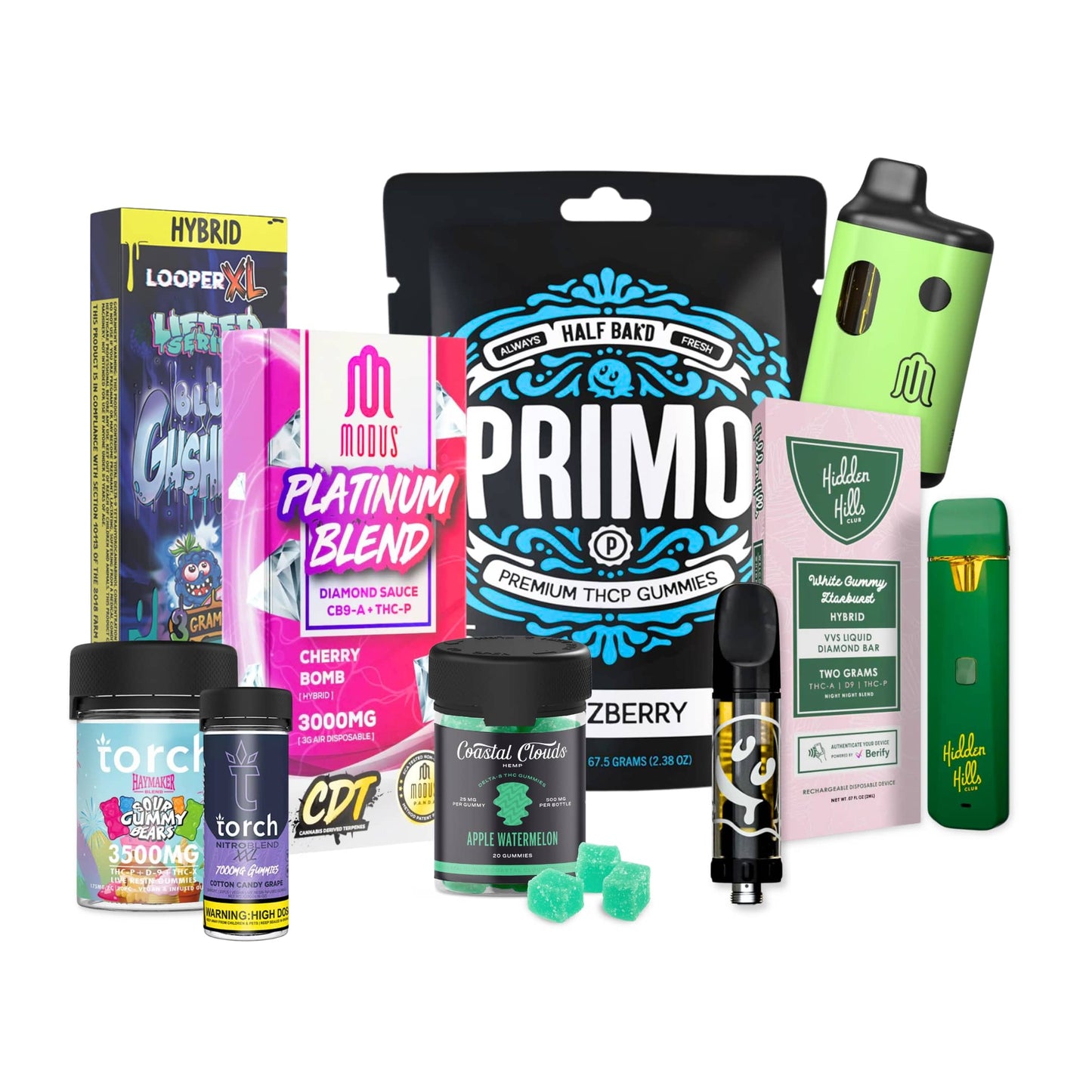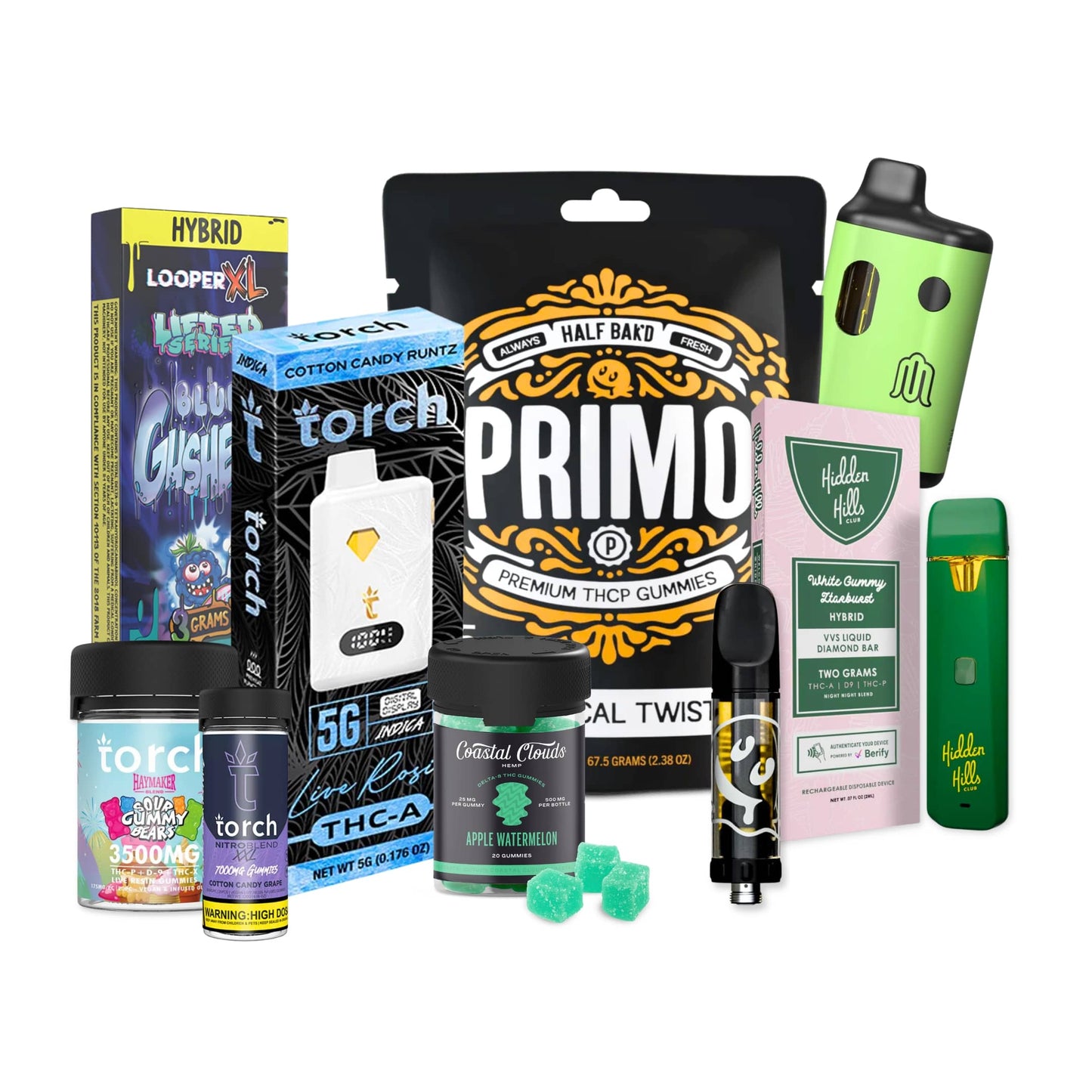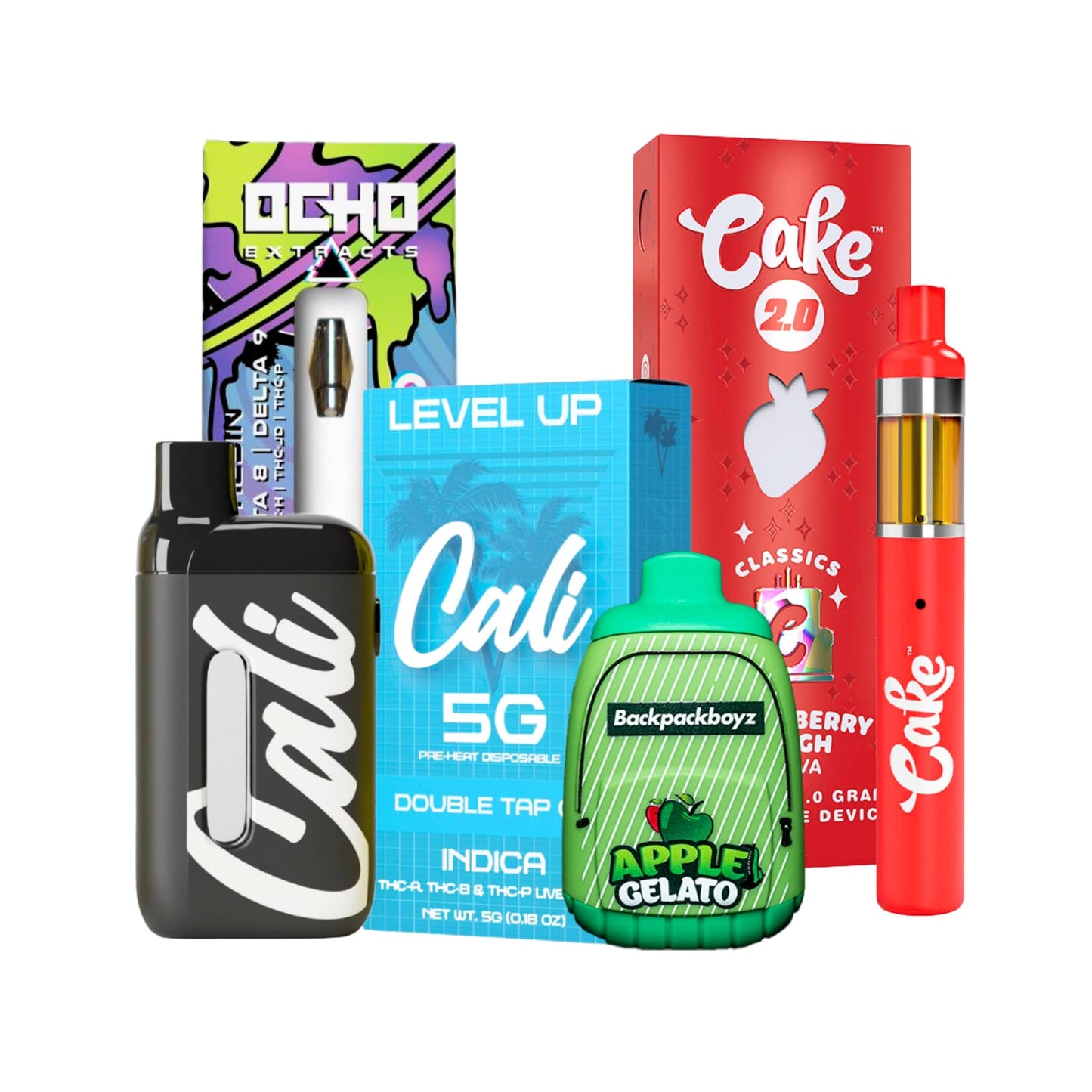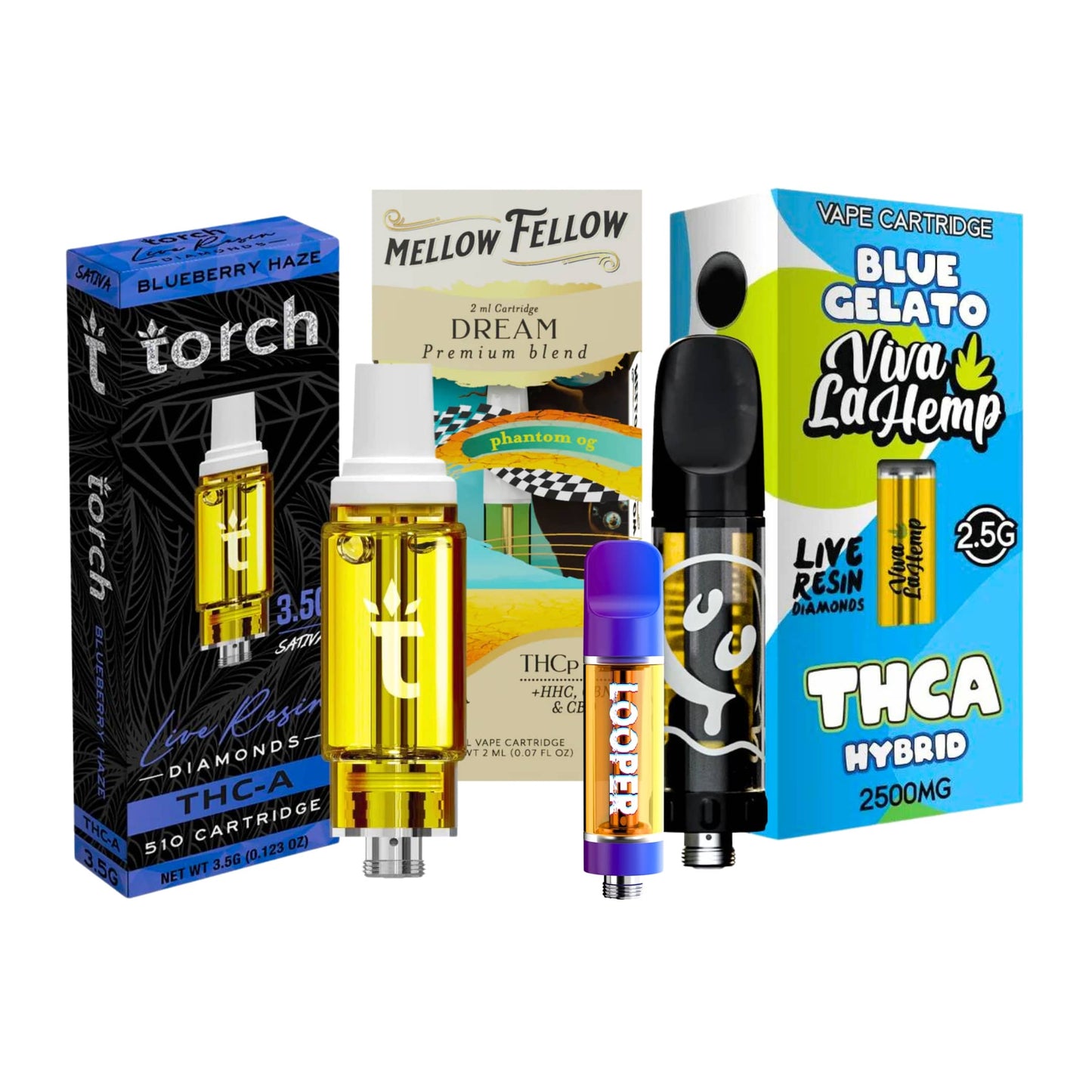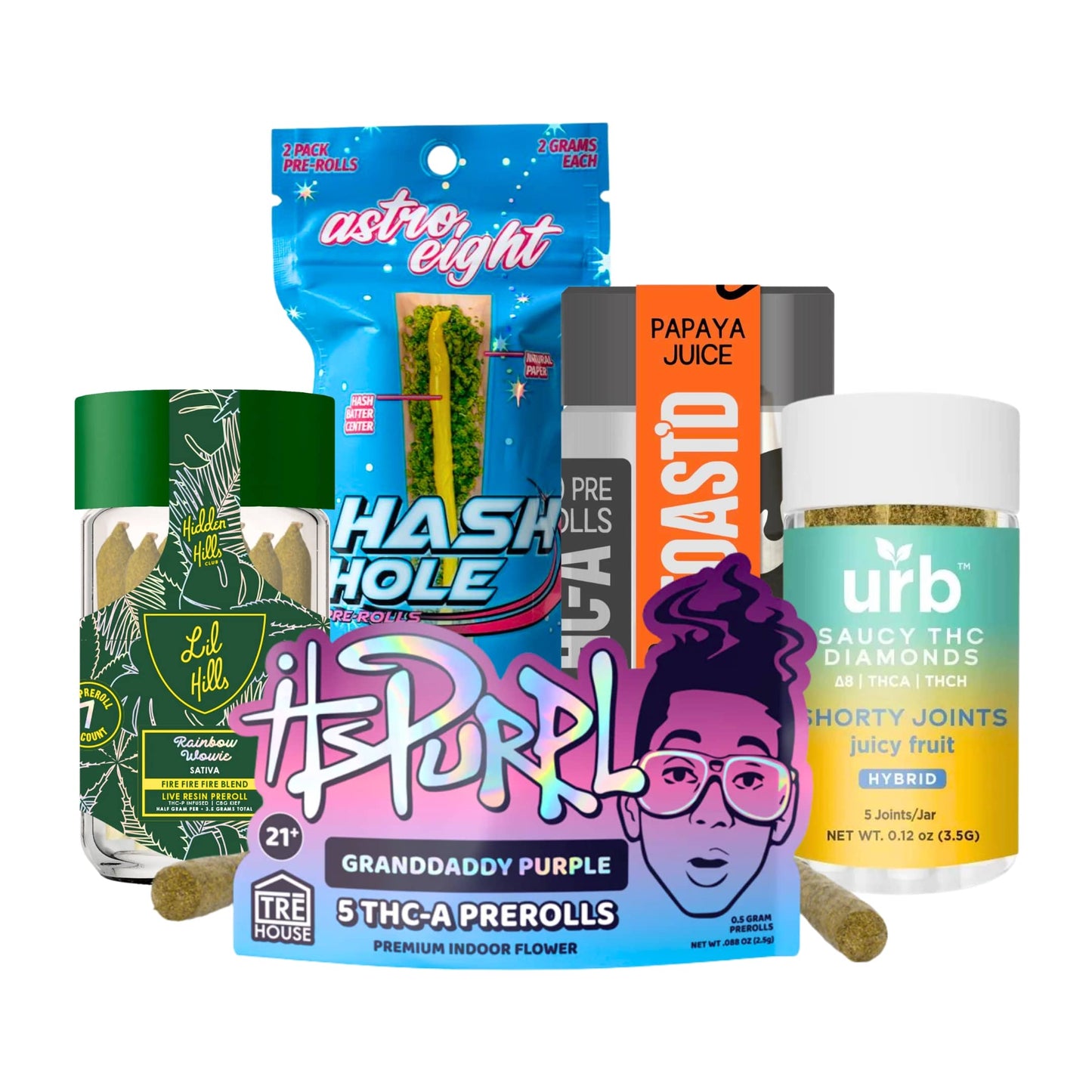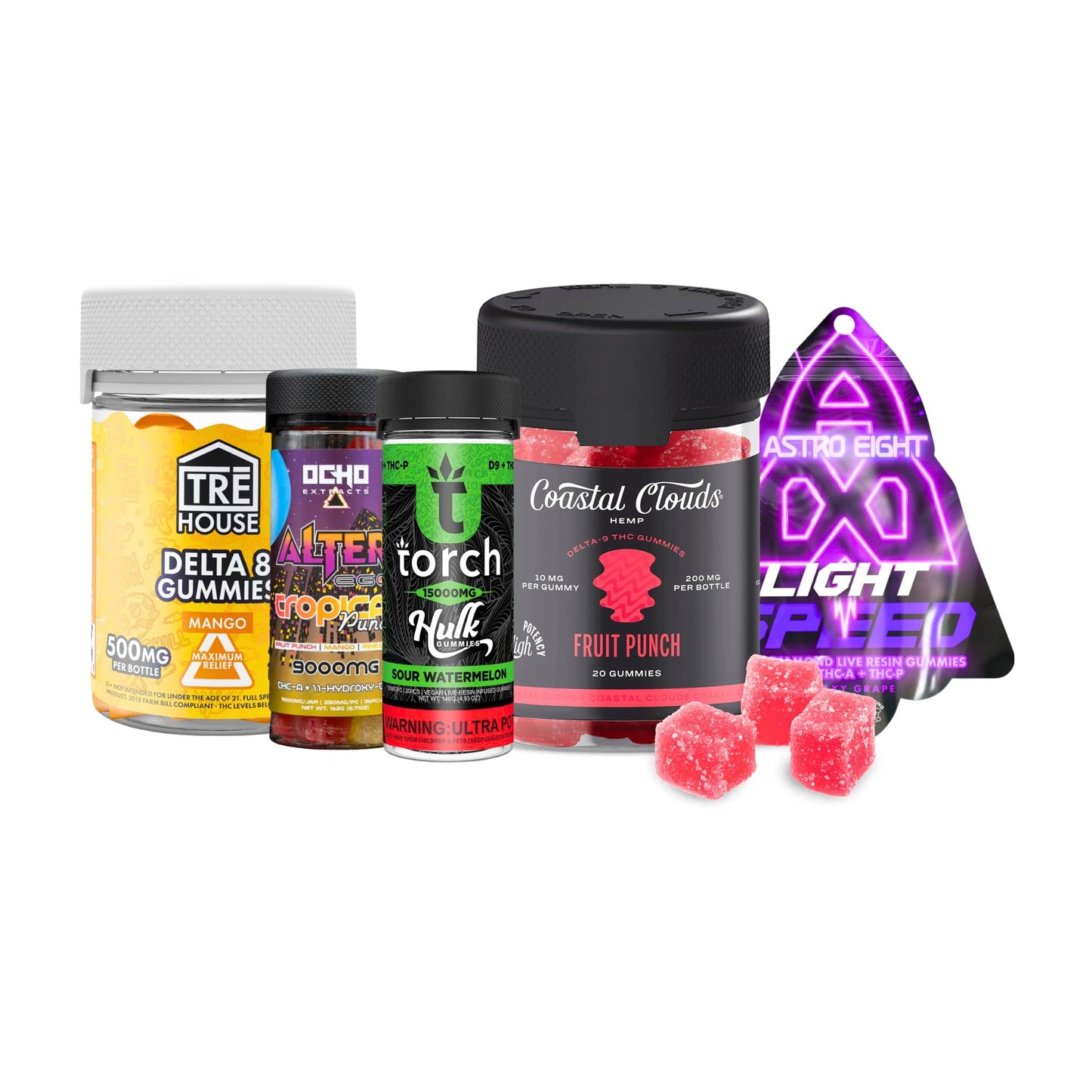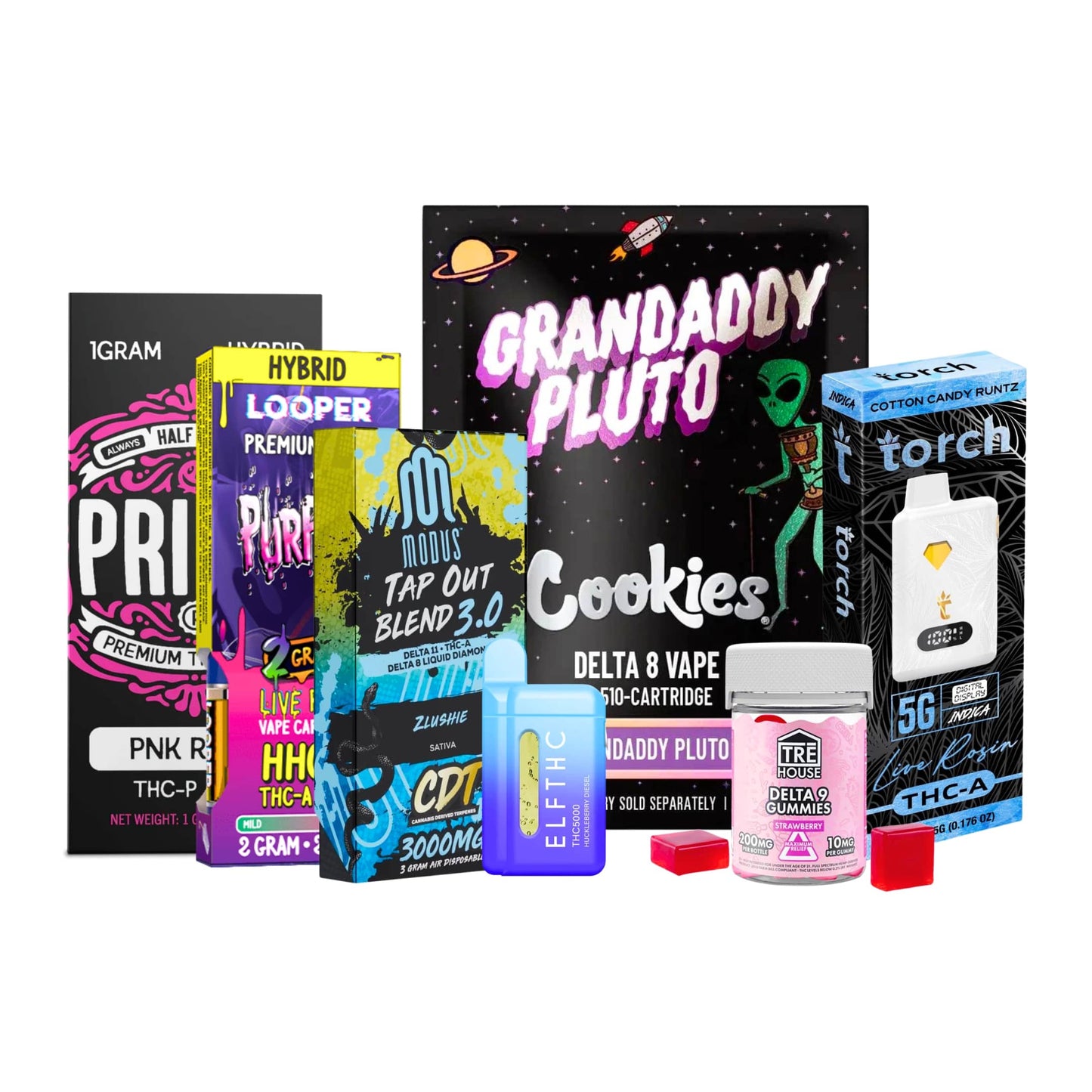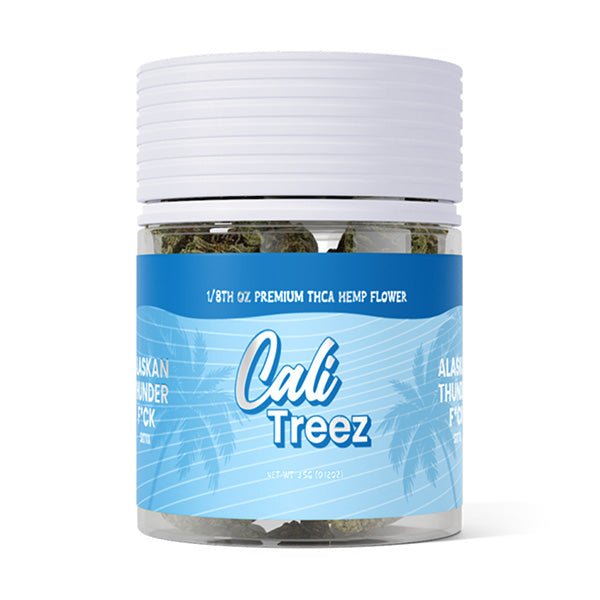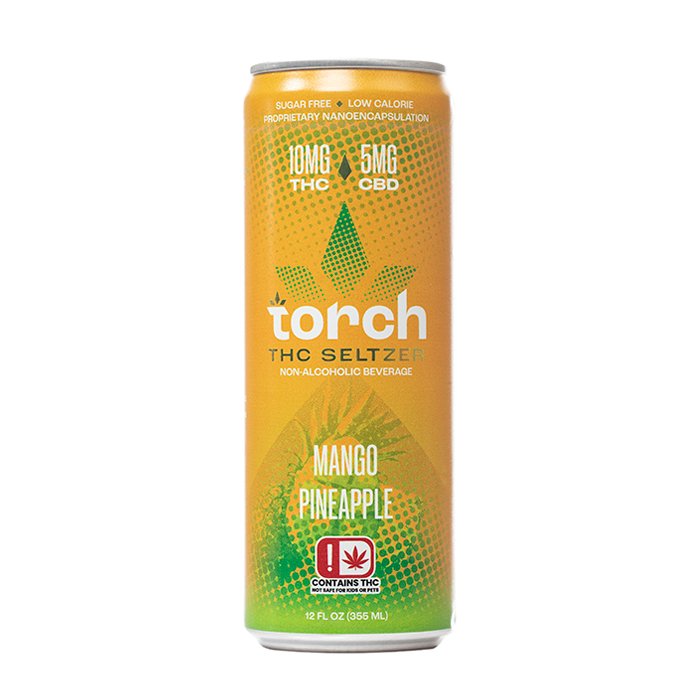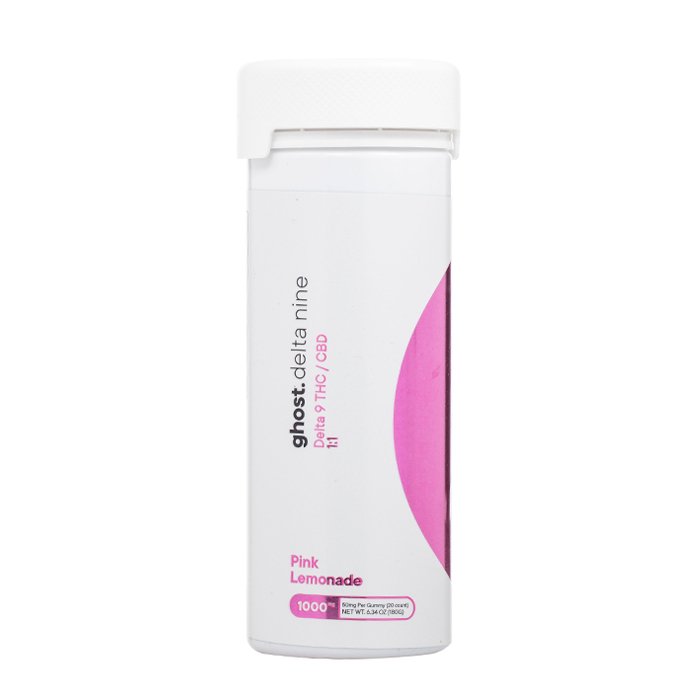Get a FREE Gummy or Vape
Sign up to get a FREE welcome vape or gummy on your first order when you buy 4 or more products.
Wondering how HHC compares to Delta 8? This article will clarify the differences and benefits of HHC vs Delta 8, helping you decide which might be right for you. We’ll dive into their effects, health benefits, and how they interact with your body.
Key Takeaways
-
HHC and Delta 8 are alternative cannabinoids derived from hemp, with HHC being semi-synthetic and more potent than Delta 8, but less so than Delta 9 THC.
-
Both cannabinoids interact with the endocannabinoid system, but HHC offers a stronger euphoric effect while Delta 8 provides a milder, clearer high suitable for stress relief.
-
The legal status of HHC and Delta 8 varies by state, making it important for consumers to understand local regulations, especially when traveling with these products.
===ARTICLE_CTA===
Understanding HHC and Delta 8
Cannabinoids are naturally occurring compounds found in cannabis plants, including hemp. Among these, HHC and Delta 8 have emerged as popular alternatives to the more potent Delta 9 THC. Cannabinoids derived from the hemp plant offer milder psychoactive effects, making them appealing to a broader audience. The primary difference between HHC, Delta 8, and Delta 9 lies in their potency, with Delta 9 being the most potent.
The growing interest in alternative cannabinoids like HHC and Delta 8 is driven by ongoing research into the compounds found in the cannabis plant. As scientists continue to uncover new insights, consumers are becoming more curious about the potential benefits and effects of these lesser-known cannabinoids. This curiosity has led to an increased demand for products that offer a range of experiences and therapeutic applications.
Understanding the basics of HHC and Delta 8 is the first step in appreciating their unique qualities. Both cannabinoids are derived from cannabis plants, but their production processes and effects differ significantly. In the following sections, we’ll delve deeper into what makes each of these cannabinoids distinct.
What is HHC?
HHC, or hexahydrocannabinol, is a semi-synthetic cannabinoid created by a chemical process called hydrogenation of THC. This hydrogenation process involves adding hydrogen atoms to THC molecules, which increases the stability of HHC compared to other cannabinoids. The result is a compound that offers a unique experience, different from traditional THC, due to its distinct chemical makeup.
Both HHC and Delta 8 have their distinct characteristics. Users describe HHC as providing a subtle energy boost and a more euphoric effect compared to Delta 8. HHC products, including HHC gummies, are becoming increasingly popular among those seeking a stable and potent alternative to Delta 9 THC. The stability provided by the hydrogenation process makes HHC a reliable option for those looking for consistent effects. Explore our HHC collection today and find the perfect product for your needs!
-
===PRODUCT_8933644730660===
-
===PRODUCT_9592789401892===
-
===PRODUCT_9609970581796===
What is Delta 8?
Delta 8 is another cannabinoid derived from CBD through a chemical process. It differs from Delta 9 THC by the location of the double bond on its carbon chain. The slight difference in chemical structure leads to Delta 8 having milder psychoactive effects, making it a popular choice for individuals looking for a less intense experience compared to Delta 9. If you're interested in exploring high-quality Delta 8 products, be sure to check out our Delta 8 collection for a variety of options.
The psychoactive effects of Delta 8 are about 50–75% as potent as those of Delta 9. This makes Delta 8 an appealing option for users who want to enjoy the benefits of THC without the intense effects associated with Delta 9. As a result, Delta 8 has carved out a niche in the market for hemp-derived cannabinoids, offering a stable and manageable alternative to other cannabinoids.
-
===PRODUCT_8654999355684===
-
===PRODUCT_9505982349604===
-
===PRODUCT_9593199100196===
How HHC and Delta 8 Interact with the Endocannabinoid System
HHC and Delta 8 interact with the body’s endocannabinoid system (ECS) to produce their effects. The ECS is a complex network of receptors and neurotransmitters that regulate various physiological processes, including mood, pain perception, and immune response. These cannabinoids can influence a wide range of bodily functions through their interaction with the ECS.
Both HHC and Delta 8 bind to cannabinoid receptors, particularly CB1 and CB2 receptors, which are found throughout the body. This interaction plays a crucial role in determining the effects of these cannabinoids. While HHC tends to bind more strongly to these receptors, Delta 8 interacts in a way that produces more subdued effects compared to other cannabinoids.
The influence of HHC and Delta 8 on the endocannabinoid system is a key factor in their therapeutic and psychoactive effects. Understanding how these cannabinoids interact with the ECS allows us to better appreciate their potential benefits and applications.
Interaction with Cannabinoid Receptors
HHC and Delta 8 primarily bind to CB1 receptors, which are found in the brain and central nervous system. This binding affects mood and cognitive functions, leading to the psychoactive effects associated with these cannabinoids. The CB1 and CB2 receptors are integral parts of the endocannabinoid system, regulating various physiological processes.
The binding of HHC and Delta 8 to CB1 receptors can enhance mood and alter cognitive processes, providing a range of effects from relaxation to euphoria. This interaction is a crucial aspect of how these cannabinoids influence the body and mind, making them valuable for both recreational and therapeutic uses.
Effects on Mood and Relaxation
HHC and Delta 8 interact with brain receptors that regulate body functions. This interaction affects mood and promotes relaxation. HHC provides a more intense euphoric effect, while Delta 8 typically induces a calm and clear-headed feeling. Users often report that Delta 8 creates mellow vibes, whereas HHC offers a subtle energy boost.
These differences in effects make HHC and Delta 8 suitable for different needs. Delta 8 is often chosen for its soothing and gentle nature, making it ideal for stress relief and relaxation. On the other hand, HHC’s slightly energizing properties can provide relaxation without the lethargy, making it a versatile option for various situations.
===KLA===
Comparing the Psychoactive Effects of HHC and Delta 8
When comparing the psychoactive effects of HHC and Delta 8, it’s clear that both offer unique experiences. HHC is known for its more intense effects. These effects are typically stronger than Delta 8 but milder than Delta 9. This makes HHC appealing to users seeking a potent yet manageable high.
Delta 8, on the other hand, is known for its clear-headed high with reduced anxiety and paranoia, making it a safer and more predictable choice for many users. The choice between HHC and Delta 8 often comes down to personal preference and the desired level of psychoactive effects.
Understanding the differences in potency and effects allows users to make informed decisions about which cannabinoid best suits their needs. Whether seeking a more intense experience with HHC or a milder, more manageable high with Delta 8, there’s a product for everyone.
Potency Levels
HHC is generally more potent than Delta 8, but less so than Delta 9. This makes HHC a strong contender for those looking for a robust psychoactive experience. Many users report that HHC provides a more potent and longer-lasting high, which can be appealing for those seeking stronger effects.
In contrast, Delta 8 offers a milder experience, which many users prefer for its clarity and reduced anxiety. The distinct molecular structure and chemical structures of these cannabinoids play a significant role in their effects, with HHC’s hydrogenated derivative providing stability and potency.
Duration of Effects
The effects of HHC can last up to 12 hours, making it a long-lasting option for users. This prolonged duration can be beneficial for those seeking extended relief or a sustained psychoactive experience. Users often describe HHC’s high as more intense and enduring, which can be both a benefit and a consideration depending on the context.
On the other hand, Delta 8 provides a clear-headed high that also lasts a substantial amount of time but is generally milder and more manageable. This makes Delta 8 suitable for users who prefer a less intense experience and want to maintain functionality throughout the day.
-
===PRODUCT_9605134319908===
-
===PRODUCT_9609902063908===
-
===PRODUCT_9609572679972===
Health Benefits and Therapeutic Uses
Both HHC and Delta 8 engage with the endocannabinoid system to produce distinct effects on mood, energy, and pain perception. These cannabinoids have shown potential for various therapeutic applications, from managing pain to reducing anxiety. The health benefits of these cannabinoids are a significant reason for their growing popularity.
HHC has been noted for its potential therapeutic applications, particularly in managing pain and anxiety. Delta 8, on the other hand, is favored for its stress relief properties and possible applications in dementia. The ongoing research into these cannabinoids continues to uncover new potential uses and benefits.
Wellness enthusiasts find the benefits of incorporating HHC and Delta 8 into daily routines compelling. From pain relief to mood enhancement, these cannabinoids offer a range of therapeutic benefits that cater to diverse needs.
Pain Relief
Pain relief is one of the reported health benefits of Delta 8, along with anti-nausea effects and appetite stimulation. Users have reported that Delta 8 provides effective pain relief for mild to moderate discomfort, making it a practical option for daily pain management.
HHC has also been reported to provide pain relief, although its more intense effects may interfere with daily tasks. Compared to Delta 8, HHC offers powerful pain relief but is better suited for significant pain management rather than everyday use.
Anxiety and Stress Reduction
Both HHC and Delta 8 are commonly used to alleviate stress, with Delta 8 being favored for its gentle calming effects. Users commonly report Delta 8’s effects to include relaxation, euphoria, and pain relief, making it a versatile option for stress reduction.
In terms of sleep support, Delta 8 is often considered a better choice than HHC due to its soothing and gentle nature. HHC’s energizing properties may hinder sleep, making it less suitable for nighttime use. However, both cannabinoids offer valuable benefits for managing anxiety and stress.
-
===PRODUCT_9593261523236===
-
===PRODUCT_9630726652196===
-
===PRODUCT_9628177072420===
Side Effects and Safety Considerations
Understanding the side effects and safety considerations of HHC and Delta 8 is crucial for informed usage. While these cannabinoids offer various health benefits, they also come with potential side effects that users should be aware of. Delta 8 is generally considered a safer choice due to its more predictable effects, while HHC provides a safer alternative for individuals who are sensitive to stronger THC effects, with fewer instances of anxiety and paranoia.
Both HHC and Delta 8 can cause common side effects such as dry mouth, dizziness, and an altered mental state. It’s essential for users to start with low dosages to assess their tolerance levels and avoid excessive consumption, which can lead to more severe side effects. Consulting a healthcare provider before using these cannabinoids, especially for individuals with preexisting conditions, is advised.
Selecting high-quality products that meet strict safety testing and purity standards helps minimize risks. Users should be aware that there is a possibility of failing drug tests when consuming HHC or Delta 8, emphasizing the importance of understanding the legal and workplace implications of their usage.
Common Side Effects
Common side effects of both HHC and Delta 8 include dry mouth, dizziness, and altered mental state. HHC can also cause appetite changes, intense effects, increased anxiety, and mental fog when consumed excessively. Delta 8, on the other hand, is generally less likely to cause paranoia compared to Delta 9 THC.
Short-term side effects of Delta 8 may include confusion, drowsiness, dizziness, anxiety, and depression, especially at high doses. Awareness of these potential side effects can help users manage their consumption more effectively and avoid adverse reactions.
Safety Precautions
Consulting a healthcare provider before using HHC or Delta 8 is important, especially for those with preexisting conditions. Starting with a low dosage allows users to assess their individual tolerance levels and effects, reducing the risk of adverse side effects. Factors such as body weight, metabolism, and tolerance can influence the appropriate dosage for each individual.
Microdosing, or taking small amounts of 2-3mg, can be an effective way to experience the benefits of Delta 8 or HHC without overwhelming side effects. Selecting safe, high-quality products that meet purity standards is essential to ensure a positive experience and avoid harmful substances.
Legal Status and Market Availability
The legal status of HHC and Delta 8 varies significantly across federal and state lines. While both cannabinoids are federally legal under the 2018 Farm Bill, their legality can differ from state to state. Traveling with Delta 8 products is permissible federally, but state laws may impose restrictions. The synthetic conversion process involved in producing Delta 8 raises questions about its legality under federal law, adding to the complexity.
The hemp derived products cannabinoid market has experienced explosive growth, increasing by over 1,200% from 2020 to 2023. This growth reflects the rising demand for alternative cannabinoids like HHC and Delta 8 within the hemp industry. Various forms, including gummies, oils, and vape cartridges, are available to meet diverse consumer preferences.
Understanding the legal landscape and market availability of these products is essential for informed decision-making. Consumers should stay updated on state regulations and choose products that comply with local laws to avoid legal complications.
Federal and State Laws
HHC is federally legal as long as it is derived from hemp and complies with the THC limits set by the Farm Bill. Delta 8 is also federally legal since it is derived from hemp, provided it meets the 0.3% Delta 9 THC limit. However, many states have passed bills prohibiting or restricting Delta 8, leading to varying legal statuses across jurisdictions.
Employers must consider the variation in state laws regarding HHC and Delta 8 when crafting their drug policies. The legal status of HHC varies significantly by state; some states have banned it, while others allow it under certain conditions. This patchwork of regulations requires consumers to stay informed about the laws in their specific locations.
Product Types and Availability
HHC and Delta 8 are available in various forms, including gummies, oils, and vape cartridges. Edibles, oils, and vape cartridges are among the popular product types for both HHC and Delta 8. Delta-8 THC accounted for 44% of the U.S. hemp-derived cannabinoid market in 2023, generating approximately $1.2 billion in sales.
Factors driving consumer choices for cannabinoids include price, availability, and the distinct characteristics of different products. The wide range of product types allows consumers to choose the format that best suits their preferences and needs.
-
===PRODUCT_9934276460836===
-
===PRODUCT_9651831669028===
-
===PRODUCT_9505985724708===
Consumer Preferences and Trends
Consumer preferences and trends in the cannabinoid market are continually evolving. The emergence of THC products like Delta 8 complicates maintaining a drug-free workplace due to their legal status in various states. As more consumers seek a variety of experiences, the demand for diverse cannabinoid products continues to rise within the cannabis industry.
A notable segment of consumers is looking for a milder, more manageable experience, which drives interest in Delta 8 products. The market for cannabinoid products is experiencing significant growth as consumers seek options that offer different psychoactive potencies, health benefits, and legal accessibility. This rise in demand reflects shifting consumer preferences and highlights the need for innovation in product offerings.
User experiences highlight the variance in psychoactive effects between HHC and Delta 8. HHC is often reported to have a stronger, more intense high, while Delta 8 produces milder psychoactive effects that allow for a more manageable experience. Many testimonials suggest that users find Delta 8 to be a better fit for their needs due to its reduced anxiety and clearer headspace.
Market Demand
The demand for cannabinoid products is driven by consumers seeking a range of experiences. Factors influencing consumer choices include the psychoactive potency, health benefits, and legal accessibility of cannabinoid products. The rise in demand for diverse cannabinoid products reflects shifting consumer preferences and highlights the need for innovation in product offerings.
A notable segment of consumers is looking for a milder, more manageable experience, which drives interest in Delta 8 products. This trend indicates a growing market for alternative cannabinoids that offer unique benefits and cater to different user needs.
User Experiences
User experiences highlight the variance in psychoactive effects between HHC and Delta 8. HHC is often reported to have a stronger, more intense high, while Delta 8 produces milder psychoactive effects that allow for a more manageable experience. Many testimonials suggest that users find Delta 8 to be a better fit for their needs due to its reduced anxiety and clearer headspace.
Health benefits reported by users include pain relief and anxiety reduction from both HHC and Delta 8. However, common side effects like dry mouth, dizziness, and an altered mental state emphasize the necessity for caution when trying these cannabinoids.
Drug Testing and Workplace Concerns
Drug testing and workplace policies are significant concerns for users of HHC and Delta 8. Due to their structural similarity to THC, both HHC and Delta 8 may show up on drug tests. This can pose challenges for users in regulated environments, where drug tests are common.
Different employer policies regarding the use of HHC and Delta 8 can affect employment decisions. Users should be cautious and aware of their employer’s policies concerning HHC and Delta 8 usage.
Knowing the potential implications of using these cannabinoids in a workplace setting helps avoid conflicts and maintain compliance with company policies.
Will HHC or Delta 8 Show Up on a Drug Test?
Yes, both HHC and Delta 8 can show up on a drug test. HHC can be detected in various drug tests, including urine and blood tests, particularly with significant use. The likelihood of HHC showing up in drug tests increases with higher doses and frequent use.
Current drug testing methods generally cannot differentiate Delta-8 from other THC forms, leading to potential positive tests. Users should be aware of this possibility and take appropriate precautions if they are subject to drug testing.
Workplace Policies
Employers can choose to include or exclude Delta 8 in their drug testing policies based on safety and legal requirements. Employers may have differing views on the use of HHC and Delta 8, which can affect workplace policies. It is advisable for users in regulated environments to be cautious about using HHC or Delta 8 due to potential drug testing implications.
Being informed about workplace policies and the potential risks of using these cannabinoids is crucial for maintaining employment and avoiding conflicts with employer regulations.
Proper Storage and Handling of HHC and Delta 8 Products
Proper storage and handling of HHC and Delta 8 products are essential to maintain their potency and efficacy. Maintaining correct storage conditions can significantly impact the quality and effectiveness of these products. Keeping HHC and Delta 8 products away from heat, light, and moisture helps preserve their freshness and potency.
Using airtight containers, preferably glass, can help prevent oxidation and contamination of HHC and Delta 8 products. Delta 8 tinctures should be stored in a cool, dark place to maintain their effectiveness and should be tightly sealed after each use.
Proper storage practices ensure that these products remain effective and safe for use.
Storage Recommendations
HHC and Delta 8 should be kept in a cool, dark location to protect them from light and heat, which can degrade their quality. Using airtight containers, preferably glass, can help prevent oxidation and contamination of HHC and Delta 8 products. Gummies need to be kept in a cool environment, ideally in a refrigerator, to prevent melting and maintain their quality.
Vape cartridges are best stored in a dark and cool area to protect their potency and flavor over time. Sealing containers tightly after use helps maintain the freshness and efficacy of these products.
Handling Tips
Proper handling of HHC and Delta 8 products is essential to maintain their potency and prevent contamination. Always keep HHC and Delta 8 products in their original containers when not in use to avoid exposure to air and moisture. Store gummies in a cool, dark place, ensuring they are sealed tightly to maintain freshness.
Tinctures should be kept in a cool environment away from direct sunlight to prevent degradation of compounds. Vape cartridges should be stored upright and protected from extreme temperatures to ensure their longevity. Following these best practices will help maintain the quality of HHC and Delta 8 products.
Traveling with HHC and Delta 8 Products
Traveling with HHC and Delta 8 products requires careful consideration of legal regulations. While HHC and Delta 8 are federally legal in the US under the 2018 Farm Bill, state laws can vary significantly, impacting the legality of carrying these products. It’s important to understand the regulations in the states you are traveling to and from to avoid legal complications.
When flying domestically, it is recommended to keep HHC and Delta 8 products in their original packaging to avoid misunderstandings with TSA agents. Keeping Delta 8 products in original packaging helps avoid confusion about legality during travel. Carrying lab reports can help verify the legality of these products during security checks.
For international travel, avoiding Delta 8 THC products is advisable due to varying legal statuses and potential legal repercussions. International travelers should be aware that laws concerning cannabis, including Delta 8, vary widely by country and can result in serious consequences if not adhered to.
Domestic Travel
When flying domestically, it is recommended to keep HHC and Delta 8 products in their original packaging to avoid misunderstandings with TSA agents. Keeping Delta 8 products in original packaging helps avoid confusion about legality during travel. Delta 8 products may be mistaken for illegal marijuana during security checks, so carrying lab reports can help verify their legality.
When traveling domestically with HHC and Delta 8 products, it is crucial to follow regulations to prevent any issues with authorities. Ensuring that products are properly labeled and stored can help avoid complications during travel.
International Travel
Carrying any cannabis products, including Delta 8, on international flights is generally advised against due to varying laws. It is generally advised to avoid taking Delta 8 THC products on international flights due to varying legal statuses and potential risks of legal repercussions. Traveling internationally with Delta 8 can introduce legal complexities owing to differences in laws between countries.
International travelers should be aware that laws concerning cannabis, including Delta 8, vary widely by country and can result in serious consequences if not adhered to. To avoid legal issues, it is best to refrain from carrying these products on international flights.
Summary
In summary, HHC and Delta 8 offer unique experiences and potential therapeutic benefits that cater to diverse preferences and needs. While both cannabinoids are derived from the hemp plant, their production processes, effects, and legal statuses differ significantly. HHC provides a more intense and long-lasting high, while Delta 8 offers a milder, more manageable experience.
Understanding the interaction of these cannabinoids with the endocannabinoid system, their health benefits, side effects, and legal implications is crucial for informed usage. Proper storage and handling practices ensure the quality and efficacy of HHC and Delta 8 products, while awareness of travel regulations helps avoid legal complications.
By exploring the key differences and benefits of HHC and Delta 8, consumers can make informed decisions about which cannabinoid best suits their needs. Whether seeking pain relief, anxiety reduction, or a specific psychoactive experience, HHC and Delta 8 provide valuable options in the expanding world of hemp-derived cannabinoids.
Frequently Asked Questions
Is HHC more sativa or indica?
HHC is neither Indica nor Sativa, as it is a compound that can come from either cannabis strain. Its effects are determined by its chemical structure and how the body reacts to it, not by lineage.
Does HHC get you higher than Delta 8?
HHC is generally considered to provide a more intense psychoactive experience than Delta-8, which offers milder effects. Users often report that HHC feels more similar to traditional Delta-9 THC, leading to a stronger high.
What is the primary difference between HHC and Delta 8?
The primary difference between HHC and Delta 8 is their potency; HHC delivers a more intense high, while Delta 8 provides milder, clearer-headed effects. This distinction is essential when choosing between the two for your desired experience.
Will HHC or Delta 8 show up on a drug test?
Both HHC and Delta 8 can show up on a drug test, as they are structurally similar to THC, and standard testing methods usually cannot differentiate them. Consequently, using these substances may result in a positive drug test.
Are HHC and Delta 8 federally legal?
Yes, HHC and Delta 8 are federally legal under the 2018 Farm Bill if derived from hemp and compliant with THC limits; however, their legality may differ by state.


